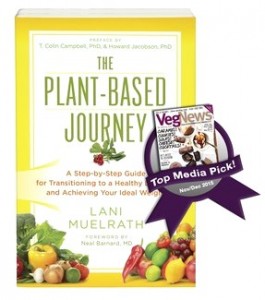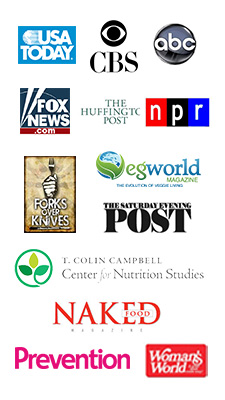I promised a follow up to my Diet Rules Rant: Part 1.
For what good is a rant without some positive suggestions to counter the rant-worthy? 😉
 The interview that I reported on in Part 1 was with Dr. Judith Beck, clinical Associate Professor of Psychology in psychiatry at the University of Pennsylvania and director of the Beck Institute for Cognitive Therapy and Research in Bala Cynwyd, Pa.
The interview that I reported on in Part 1 was with Dr. Judith Beck, clinical Associate Professor of Psychology in psychiatry at the University of Pennsylvania and director of the Beck Institute for Cognitive Therapy and Research in Bala Cynwyd, Pa.
Dr. Beck’s approach to weight loss is given away in her Institute Name: Cognitive Therapy. And though her “rules” list reads to me like someone who has NEVER experienced the trials and angst of a battle with food, eating and weight, I DO believe there are very powerful elements of support with the cognitive therapy model.
And she makes some good points elsewhere in the interview. Tell me what you think.
Q: How does one begin to recognize the difference between pesky cravings and genuine hunger?
Dr. Beck: Chronic dieters call any desire to eat hunger. Anytime they want to eat, they label that as “I am hungry.” But lots of times what they are calling hunger is really thirst, tiredness, distress, cravings or anxiety.
My Thoughts: This I have found to be an absolute and distinct possibility. I call it “fuel signal mixup”, a great term I learned from my friend Jean Antonello. Those of us with a chronic dieting history have such cumbersome layers of experience with it that we don’t see the forest for the trees. Maybe I’m just hungry, or tired! D’oh! Check into it first and it may evaporate some of the problem.
Q: You write that people who struggle with their weight tend to think that thin people can eat whatever they like whenever they please.
Dr. Beck: The truth is that most people over the age of 30 who are thin do watch what they eat. The problem with chronic dieters is they have this profound sense of unfairness. They’ll say, “Why should I have to limit my eating if nobody else is?” I talk about the fact that many people do limit their eating, even if you don’t know it.
My Thoughts: This may well be true. We tend to think that everyone who doesn’t “show” a weight problem just has it easy and doesn’t need to pay any attention to weight management. This is in contrast to the obsessive compulsive dieters, of course!
I’ve always thought it would be great if I could do just what naturally trim people do if their belts get a little tight: cut back on the desserts and caloric heavyweights. And guess what? That’s exactly what I can do now, simply, easily, like never before. It’s taken a revolution of thought process, but I’m here to tell you it CAN be done. And we can “normally” manage our weight with the rest and the best. I promise!
Q: You describe several dieting skills. What are they?
Dr. Beck: The first step is to write down every reason you can think of why you would like to lose weight and read it every morning and every time cravings start to kick in….You have to build up your sense of self-efficacy. A big factor in going off your diet is the sabotaging thought, “I am upset, therefore I deserve to eat.” Or “There is no other way I can calm down unless I eat.”
I have an exercise called “the no-choice technique,” where I ask, “Do you stop at red lights?” And the dieter will answer, “Yes.” Then I ask, “Do you always feel like stopping at red lights?” They’ll say, “Yes, of course.” I then ask, “Do you struggle with yourself? Do you say, ‘Well, I really want to go through the red light, it’s not fair that I can’t go though the red light?’ ” They answer, “No, I just don’t go through.” Well, that’s because you’ve put stopping at red lights in your “no-choice category.” You may feel like not stopping, but that’s not relevant. The painful part about dieting is struggling over it, wrestling with painful desires. I take the struggle out of dieting by helping you retrain your brain.
My Thoughts:This analogy is really eye opening, don’t you think?
It shows how our pathology with any subject – in this case dieting – can interfere with moving forward and common sense. Red light analogy, hnh? One for the arsenal?
Are you getting all the news that’s healthy, fit, happy and hot? Click here to join 1,000′s of others + get your weekly health, body shaping and food advice for free from the Plant-Strong Fitness Expert.




Christina,
A little self-knowledge and acceptance of individual variation is, I agree, a HUGE step forward in success. The “spoiled brat syndrome” (as I call it) of wishing we had it like someone else (or our perception of someone else, I should clarify!) when it comes to bodies and weight loss doesn’t do a a lick of good. Once you get that (it took me awhile!) you are WAY ahead!
Thanks for the great share!
Lani
I love the red light line. I’ll have to try that one myself. My problem is I start to get in a bad habit and have a hard time shaking out of it.
It helps to have your columns – I always know where to come for an inspiration. Thanks.
Cassandra
Cassandra,
Hey, happy to help! I like the red light story too. Thanks for coming in today!
As one who struggles with my weight I have said the very thing about it being unfair that others can eat what they want and stay thin. I would watch my own sister eat an entire pizza in one setting and not gain a pound but I on the other hand would just look at the pizza and gain weight. slight exaggeration 🙂 I think that it may be true that at 30 many do have to watch their weight as the metabolism slows down but I really believe that different factors contribute to the ability to lose weight and it is not the same for everyone and is easier for some. Unfair, I would say yes but does it help you lose weight to dwell on something you can’t change? Of course not, so I do agree that it is a matter of retraining our minds to have a different view of our personal situation and a new view of dieting and weight loss. It is a hard adjustment and I have personally lived by the “no choice technique” as illistrated and it has proven to be the only way for me. I do not allow myself the choice to eat things that I cannot eat and reach my goal. I think that we can be our worst enemies some times by our own reasoning. It can be very difficult at first but in time it become just a lifestyle and no longer a diet.